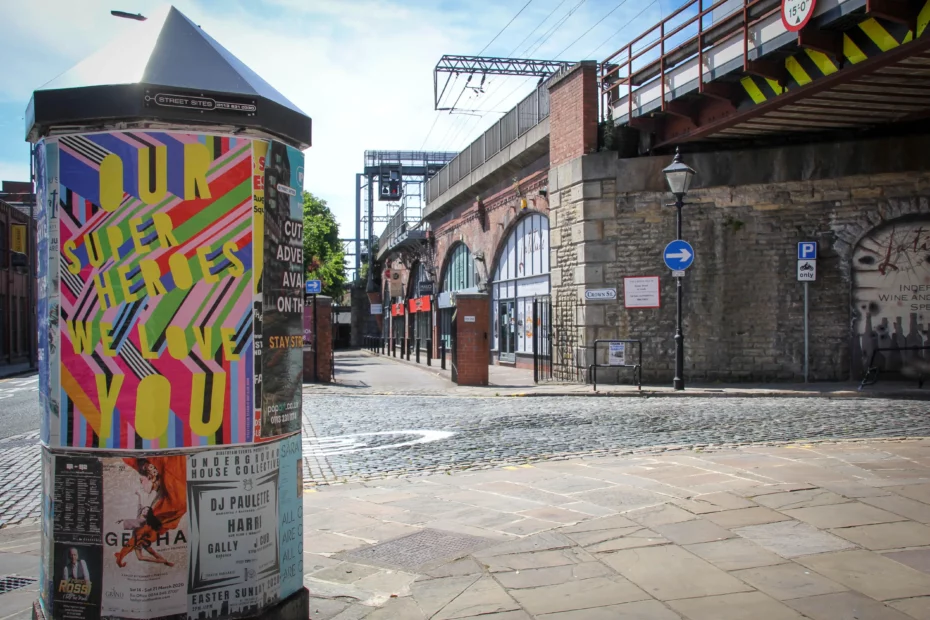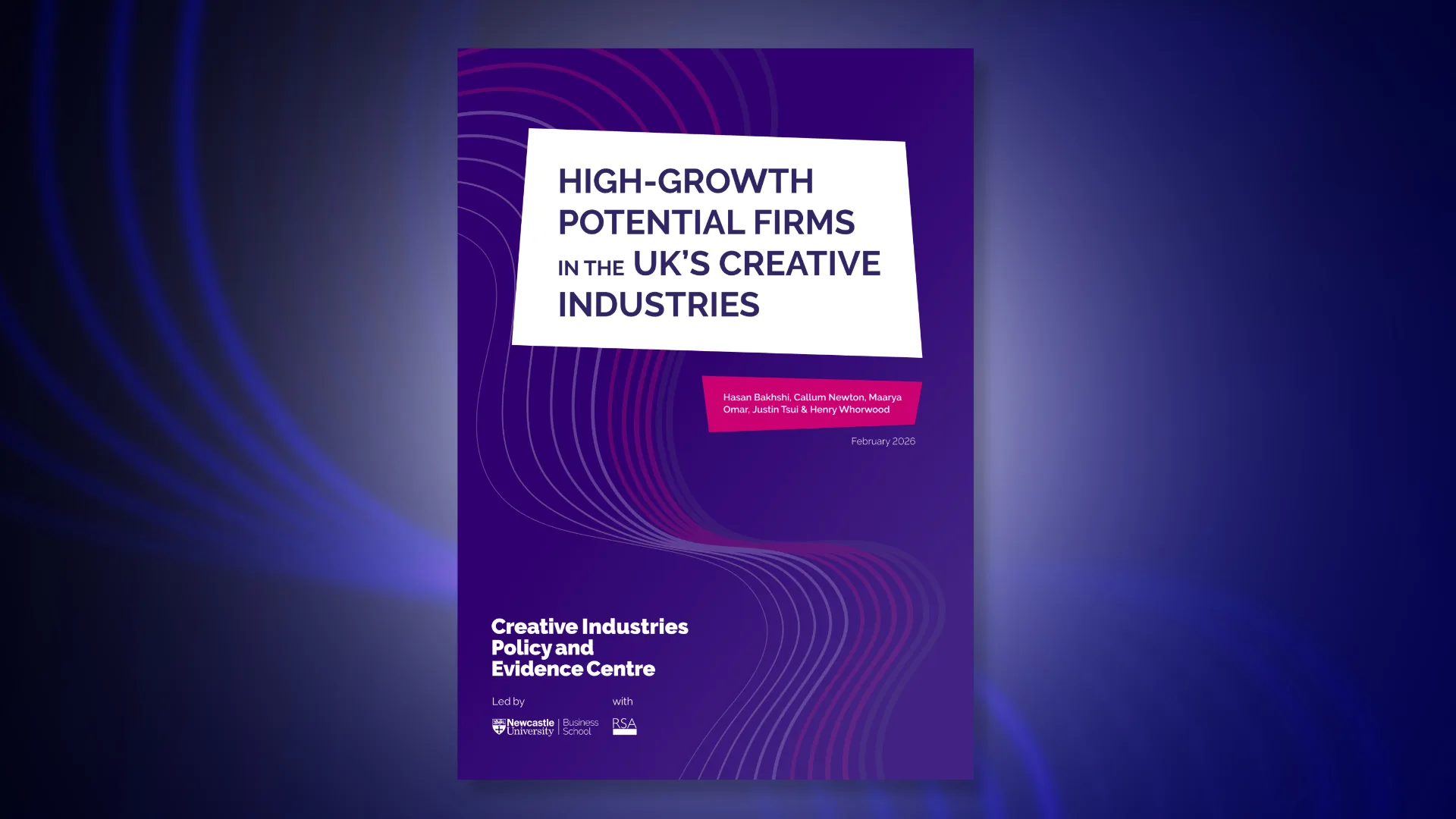Study shows the importance of micro creative clusters as engines of local and national growth
– The Creative Industries Policy and Evidence Centre finds 709 ‘microclusters’ of creative businesses in all corners of the UK, with a third outside of the big cities
– The research shows their importance as engines of local and national growth
19th November 2020 – While creative business communities are typically thought to only exist in the UK’s bustling urban centres, such as London or Manchester, new research has found 709 different ‘microclusters’(1) (areas with at least 50 creative organisations) across the UK. These micro creative clusters can be found within the larger cities – like Shoreditch in London, the North Laine in Brighton, and the Northern Quarter in Manchester – but have also been found in less well known creative hotspots like Colwyn Bay in North Wales and Buxton in England.
Previous research by Nesta in 2016 found 47 creative clusters in large cities, such as the film and television sectors in Cardiff and Bristol. These 47 large and well established clusters have very high numbers of creative businesses ranging from visual arts, to animation, and marketing. Today’s new research, by the Creative Industries Policy and Evidence Centre (PEC), goes further, identifying 709 micro creative clusters. While some are found within the UK’s big cities, a third are outside of them, with many in remote or rural areas that are not typically associated as creative or cultural places. For example, a local creative ecosystem has been built at Creative Folkestone in Kent, academia sits alongside production and visual arts industries in Plymouth, and 65 creative businesses are found in the Shetland Islands.
Creative clusters are important engines of growth as groups of businesses in a particular industry benefit from being near to each other, for instance the potteries of Stoke-on-Trent. Creative clusters have been the engines of the growth of the UK’s creative industries, which now contribute over £100 billion to the UK economy. But with the sector particularly affected by COVID-19, creative clusters will be important as the UK economy seeks to recover.
The PEC’s researchers, from the University of Sussex, used data scraped from the websites of 200,000 creative businesses(2) to identify 709 distinct micro creative clusters in the UK. They then surveyed 1,000 of these businesses to find out how they operate, the challenges they face, and how they differ from larger creative clusters at a city level, such as in Glasgow, Brighton and Manchester.
The creative businesses that were in the microclusters (but outside of the larger, well known creative areas) were more likely to want to grow and more likely to have grown in the past year. These businesses behaved like those within the larger creative clusters, but they view access to external finance as a barrier to their growth, especially for those outside of London and the South East.
Josh Siepel, from the Creative Industries Policy and Evidence Centre and the University of Sussex, said:
“Our research shows that the creative industries aren’t only the preserve of our large cities – that there is also huge opportunity in small creative business communities situated in towns and villages across the UK. Companies in these micro creative clusters wanted to grow, but the disruption of Covid and the uncertainty of Brexit put them at enormous risk. These small clusters represent a real opportunity for building economic resilience across the UK, and need to be supported as the government seeks to ‘level up’ the UK’s regions. One way the government can address this is to address the issues that companies in microclusters face in accessing finance by extending the Creative Scale-Up Scheme in the upcoming Spending Review.
“Our research shows a huge number of small but fragile creative clusters around the UK. Failing to support these clusters could set back these places by another decade and erase the opportunity to address the UK’s longstanding regional inequalities in creative industries.” Download the full report ‘Creative Radar’, and explore the map of 709 micro creative clusters and 47 larger creative clusters in the UK.
Download the full report ‘Creative Radar’, and explore the map of 709 micro creative clusters and 47 larger creative clusters in the UK.
-Ends-
Press contact: Anna Zabow, Communications Manager of the PEC. 07713 619077 / anna.zabow@nesta.org.uk
Notes to Editors
1. Creative clusters are cities and regions that have high concentrations of creative businesses. These were defined using Nesta research that identified the cities and regions of the UK with high average levels of creative businesses. These are typically in larger UK cities and towns. ‘Microclusters’ are identified as streets, neighbourhoods, villages or towns with at least 50 creative organisations. Cities may have multiple microclusters, for example Greater Manchester has 22.
2. The research used street level data from 200,000 websites of creative industries websites and ran an algorithm to identify places were companies were more likely to be clustered. These were identified as microclusters. The companies for which the researchers had websites were then used as a sample frame for a survey of 1000 businesses, which were asked about their activities, plans and challenges.
3. Josh Siepel, one of the authors of the report from the University of Sussex and the lead for the PEC’s work in creative clusters, is available for media interviews.
About the Creative Industries Policy and Evidence Centre (PEC)
The Creative Industries Policy and Evidence Centre (PEC) works to support the growth of the UK’s Creative Industries through the production of independent and authoritative evidence and policy advice. Led by Nesta and funded by the Arts and Humanities Research Council as part of the UK Government’s Industrial Strategy, the Centre comprises of a consortium of universities from across the UK (Birmingham; Cardiff; Edinburgh; Glasgow; Work Foundation at Lancaster University; LSE; Manchester; Newcastle; Sussex; Ulster). The PEC works with a diverse range of industry partners including the Creative Industries Federation. To find out more, visit www.pec.ac.uk and @CreativePEC
Image by Gary Butterfield
Related News and Press
Creative Industries present huge investment opportunity
New research shows ‘high-growth potential firms’ outnumber both Life Sciences and Advanced Manufactu…
Bolster business and financial support for creative industries micro firms to achieve UK innovation and growth ambitions
New Creative PEC research suggests creative industries micro firms have a vital role to play in driv…
Back the creative industries to grow the economy, says new research showing creative firms are more likely to be innovators and exporters
New research finds a higher share of UK creative MSMEs are exporters compared with the rest of the e…



